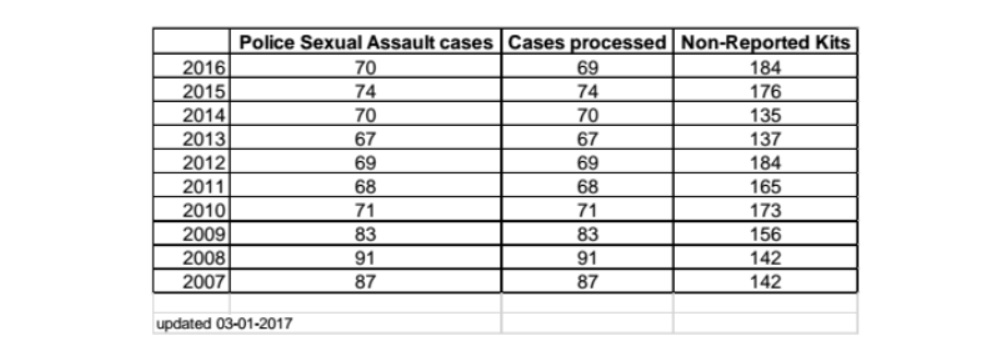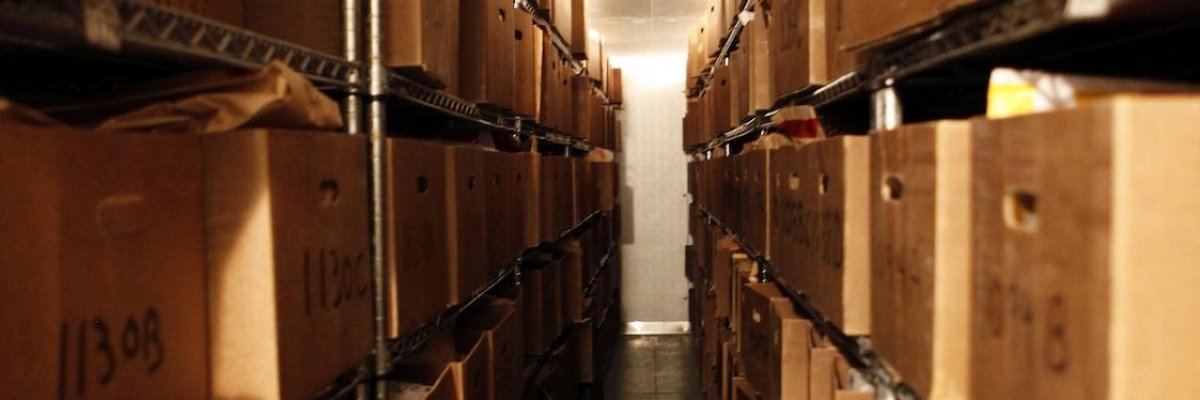Rape kits provide more than evidence samples. When survivors are examined, they are provided extensive medical care - checks for injuries, a series of medications to prevent HIV and other STDs, and access to social workers. This is why the importance of undergoing a sexual assault exam has been stressed even for men and women who choose to not report the crime. It’s also why, in 2009, all states were federally mandated to allow “anonymous” rape kits. These “Jane/John Doe” kits must be provided free to the victim in order for the state to continue receiving funds under the Violence Against Women Act.
Victims that undergo these anonymous kits, which are marked with numbers instead of names, have a set amount of time to decide whether or not to press charges and pursue a criminal case. This period differs from state-to-state.

In New Hampshire, the kits are stored for up to 60 days.
While ensuring all victims have access to medical care is a good thing, it’s important to note that anonymous cases will never be tested unless the victim elects to press charges. In a crime where victims are robbed of bodily autonomy, it is crucial for them to experience a sense of control over their case, and by not wanting to press charges they didn’t expressly consent to having their case evidence tested. But this policy contributes to the large backlog of rape kits.
Each case contains vital DNA evidence that could help solve - and prevent - future crimes. A victim should be allowed to have their case evidence tested and uploaded into CODIS without choosing to pursue a criminal investigation. Not wanting to press charges should be seen as separate from strengthening a national database of criminal DNA. The latter has effects that reach far beyond one case, which is why every kit should be tested.
In San Jose, this policy means about 60 cases per year go untested. In Rhode Island, it contribute to the large discrepancy between tested kits and those not reported as a police case.

When rape kit DNA is analyzed and uploaded into CODIS, it can be matched against other entries, identifying serial perpetrators. And if there isn’t an immediate match, having that DNA within the database may lead to a match in the future from a victim who does want to press charges but doesn’t know the perpetrator’s identity.
Victims should have the right to refuse to press charges and remain anonymous, but their case should still be handled like a crime. The DNA evidence their kit contains is still essential. Opting out of pressing charges shouldn’t preclude testing, and shouldn’t relegate the kit to sit forgotten on an evidence room shelf.
Want to get involved? Add your town to our project via the form below, and we’ll submit a request to your local law enforcement.
Image via EndTheBacklog.com




